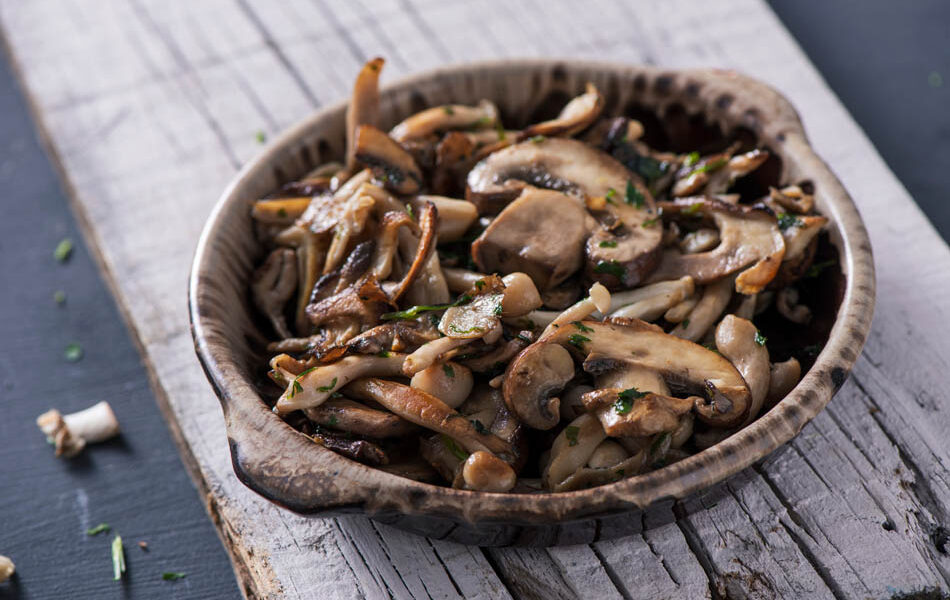Are Mushrooms Good for Diabetes? Hidden Benefits
Mushrooms are a healthy addition to a balanced diet with varying benefits and nutritional profiles. This article discusses the health benefits and effects of mushrooms on a diabetes diet.

Increased body inflammation can lead to conditions such as diabetes and cardiovascular disease. It is, therefore, necessary to add anti-inflammatory foods to our diet.
An ideal diet for diabetes helps in blood sugar control and reduces inflammation. Most people know that veggies are essential for a healthy diabetes diet. However, some people with diabetes might find it difficult to decide the foods to eat and the ones to avoid.
Mushrooms are among the popular snacking options, and they are a non-starchy vegetable rich in fiber. However, are mushrooms good for diabetes? This article assesses whether mushrooms are an excellent nutritional addition to a diabetes diet.
Are Mushrooms Good for Diabetes?
Research shows that eating mushrooms may be good for certain diabetes types. A diet rich in vegetables such as mushrooms and other foods rich in vitamins helps minimize the risk of contracting gestational diabetes, which affects almost 14% of all pregnancies.
Mushrooms are also a low-glycemic food that helps control diabetes. It has several nutritional benefits as it contains a high amount of fiber that reduces constipation risk, slows down digestion and absorption of food, thus regulating post-meal sugar levels.
Are Cooked Mushrooms Good for Diabetes?
Generally, cooked mushrooms are good for diabetes as there is no significant loss of nutritional value after cooking. However, grilling or microwaving mushrooms is the best way to cook them.
Fried and boiled mushrooms significantly lose proteins and antioxidants mainly due to the soluble compounds in oil and water. Fried mushrooms particularly have a huge loss of proteins and high carbohydrate content.
Nutritional Value of Mushrooms
Various mushroom types are available in grocery stores, such as Portobello, shiitake, and oyster mushrooms.
The most common type of edible mushrooms is Portobello mushrooms. Though they have different appearances and tastes, mushrooms have the same nutritional composition.
A 100g serving of raw mushrooms contains:
- 92.4g of water
- 3.09g protein
- 0.34g lipid fat
- 3.26g total carbs
- 1g dietary fiber
- 1.98g sugar
Mushrooms also contain B group vitamins such as riboflavin and pantothenic acid, as well as vitamin C and essential minerals like magnesium, sodium, zinc, copper, and phosphorus.
One cup of raw mushrooms contains 9mg of selenium, a potent antioxidant linked to improved thyroid and brain function.
Glycemic Index of Mushrooms
Mushrooms have a glycemic index (GI) of 10–15. The GI system classifies foods into three groups. Foods with a glycemic index of less than 55 are categorized as low GI foods, medium GI foods have a GI of 56–69, and high GI foods have a GI of 70–100.
Low glycemic foods raise blood sugar levels at a slower pace compared to high GI foods. Since mushrooms are a low-carb food, they don’t cause drastic spikes in blood sugar levels and help manage diabetes. It is common for diabetes mellitus patients to use medicinal mushrooms for glycemic control.
How to Add Mushrooms to Your Diet?
You can add mushrooms to your diet by eating them raw, adding them to salads, or even blending them to make soup. You can also mix them with other veggies to increase nutritional value.
Like most vegetables, raw mushrooms are gluten-free, and you can enjoy them freely if you have any gluten-related medical conditions. Ensure you incorporate fresh mushrooms in your diet as they are good for weight management.
You can try out different recipes to make low-calorie food. For instance, you can add olive oil to grilled mushrooms. This improves its fatty acid profile without increasing its calorie content.
4 Benefits of Mushrooms for Diabetes
Thanks to their impressive nutritional profile, mushrooms may help improve certain types of diabetes. All edible mushrooms have a good nutrient composition, and you can choose the best type at your local grocery, depending on your budget.
Below are some of the health benefits of mushrooms and compelling reasons why you should incorporate mushrooms into your diet.
#1 Help lower cholesterol levels
Mushrooms are an excellent protein source and help lower cholesterol levels. Research suggests that shiitake mushrooms help reduce LDL cholesterol levels by up to 54%.
Shiitake mushrooms contain compounds such as eritadenine and sterols. Eritadenine inhibits an enzyme responsible for cholesterol production, whereas sterols help block cholesterol absorption in the gut.
Studies in rats also showed that shiitake powder helped decrease the likelihood of high blood pressure, a cardiovascular disease associated with high cholesterol levels. However, there is a need for more human research on the effects of mushrooms on diabetes.
Various mushroom types contain beta-glucan, soluble fiber that slows down cholesterol absorption. Beta-glucan contains fibers and polysaccharides found in mushrooms, which have antibacterial properties.
#2 Have anti-inflammatory properties
Mushrooms contain anti-inflammatory properties such as fatty acids, carotenoids, and polysaccharides. The body’s natural response to pathogenic, chemical, and physical irritants is inflammation.
Deficiencies in vitamins, antioxidants, and microelements weaken the immune system and affect the body’s ability to deal with inflammation. The build-up of toxic by-products of metabolism may lead to oxidative stress, leading to health complications like cancer and diabetes.
Cordyceps mushrooms have other health benefits like increased exercise performance and oxygen availability during intense exercise. Reishi mushrooms are packed with antiviral and antibacterial properties.
#3 Increase iron absorption
Mushrooms contain copper and vitamin D, which are responsible for maintaining healthy nerves and improving bone health.
Additionally, copper helps stimulate iron absorption from food. Mushrooms are also a good source of iron, which helps prevent the chances of contracting anemia.
Studies show that 90% of the iron in mushrooms is absorbed in the body, and people who consume mushrooms regularly have more hemoglobin and red blood cells than those who don’t.
#4 Rich in antioxidants
Mushrooms are rich in antioxidants such as selenium, vitamins A, B, C, and E, neutralizing disease-causing radicals and boosting the immune system. These radicals contribute to vision loss, joint inflammation, Alzheimer’s disease, and coronary heart disease.
Antioxidants help minimize the risk of metabolic diseases, certain cancers, diabetes mellitus, coronary heart disease, and aging. Some studies also show that mushrooms have high vitamin B content that helps lower the risk of dementia and decreased mental function in diabetes patients.
FAQs
Mushrooms are a low-glycemic food, and they are low in sugar and carbs. They also have anti-diabetic properties and may help lower blood sugar levels. They contain potassium, which minimizes the effects of sodium on the body and helps improve insulin resistance leading to stable blood glucose levels.
Almost all edible mushrooms are good for diabetes as they have a glycemic index of 10–15. Some of the best mushrooms for diabetes include oysters, reishi, chaga, cordyceps, and Portobello mushrooms. Lion mane’s mushrooms are also good for diabetes, as they help prevent neuropathy, a common symptom of diabetes.
Mushrooms are good for blood sugar, as their low glycemic index will not spike your blood sugar levels. They also contain vitamins and essential minerals that improve cholesterol and blood glucose levels, thus minimizing the risk of cardiovascular diseases. They also contain soluble fiber, slowing down glucose absorption and spikes in blood glucose levels.
A Word From Our MD
Mushrooms are a non-starchy vegetable, making them an ideal option for managing diabetes. They are also good for improving the digestive system and help in weight loss. The high fiber and water content in mushrooms helps keep you satiated for longer and reduces the chances of overeating.
Incorporating mushrooms into your diet helps lower LDL cholesterol levels, thus improving heart health. It also has anti-inflammatory properties and antioxidants that combat disease-causing radicals.
Though mushrooms have an excellent nutritional profile, it is best to incorporate them as part of a balanced diet to stay healthy. Always check the mushroom type you are consuming to avoid poisoning.
Consuming mushrooms for diabetes is good, but you should avoid overconsumption as it may lead to poor health conditions.
Though very rare, some people experience mushroom allergies, and it is best to seek professional medical advice if you experience any symptoms. As always, engage your medical doctor before making any dietary changes.
Conclusion
Mushrooms are good for diabetes care due to their low glycemic index and will not lead to spikes in blood sugar levels. They are also rich in vitamins and minerals that have numerous health benefits.
Besides the anti-diabetic properties, mushrooms are good for adding flavor to your dishes without adding extra calories.
Regardless of how you add mushrooms to your diet, you must adhere to a balanced diet and a regular workouts like running to notice significant changes.

















































 Select your language:
Select your language: 








